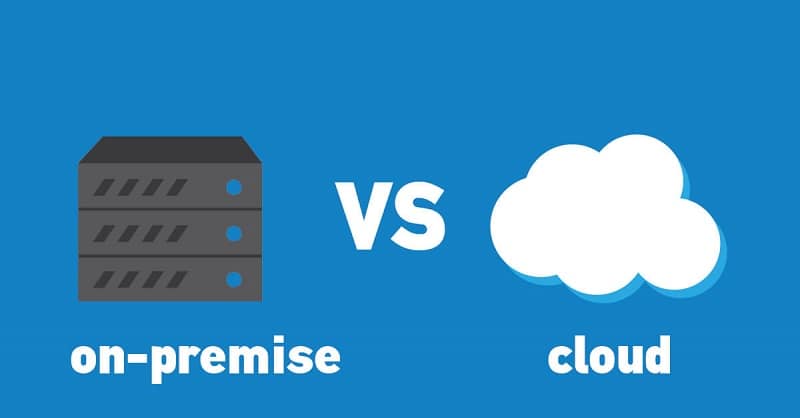
Table of Contents
WHEN YOU SHOULD SWITCH TO HOSTED PBX: KNOWING THE DIFFERENCE BETWEEN HOSTED AND VIRTUAL PBX SYSTEMS
For small business owners, finding a scalable phone system that matches their needs is crucial: The right features, reliability, and price tag can mean a difference of thousands in income each month. Solopreneurs and companies with a few employees tend to choose virtual PBX systems to field incoming calls without too many bells and whistles weighting down their phone bills every month, but how is a business to know when to move to a more comprehensive hosted PBX system? And what’s the difference, anyway?
WHAT IS PBX ANYWAY?
Traditionally, “PBX” stands for “Public Branch Exchange”, referring to an in-house operating system that connects calls to employees from a single number. In the wake of online technology, though, PBX came to encompass an entirely different spectrum of capabilities and features. No longer a simple call operator, online PBX systems began to include services like auto-attendants, automatic call-forwarding and routing, conference calls, incoming and outgoing faxing, and voicemail to email services – all run through cloud-based systems. With this shift in service came a new tiering system to help distinguish the level of circuit-switching services a business might need, namely hosted and virtual PBX.
WHICH ARE THE TOP FREE PBX BUSINESS SOLUTIONS?
WHAT’S THE DIFFERENCE BETWEEN HOSTED AND VIRTUAL PBX?
Hosted PBX is a popular option for small to mid-sized businesses, offering robust inbound and outbound calling, a wide array of other business features, and essentially replacing the need for any other phone operating system (leading to big savings). Because Hosted PBX “hosts” all calls and transmits them through the cloud, businesses with multiple offices or multiple employees on the move can enjoy the freedom of calling and receiving calls from anywhere – all under the same provider.
Businesses can connect their mobile, landline, VoIP, and IP phones to their Hosted PBX service. Hardware installation depends on the Hosted PBX provider; some require businesses to purchase or rent an IP phone, while others provide apps and software for smartphone integration and video conferencing.
Who should use Hosted PBX? Hosted PBX works best for small businesses with upwards of 5 or 6 employees and businesses with small to mid-sized offices in several locations. Because Hosted PBX tends to include monthly long-distance calling, businesses that conduct a lot of business overseas or cross-country will benefit from huge savings.
What to consider before signing up for Hosted PBX: First and foremost, Hosted PBX systems need a stable Internet connection that can support multiple extensions. While there are plenty of providers to choose from, it’s important to consider the needs of your business. For example: If your business predominantly operates in an office setting, choosing a Hosted PBX provider that relies on IP Phones more than their smartphone apps might be best.
Virtual PBX, meanwhile, is an automated answering service transferring incoming calls to existing phone lines (landline and mobile) through a cloud-based third-party provider. With no hardware to install, solopreneurs can take calls from anywhere they happen to be working, allowing them to maintain an air of professionalism even when they’re not working from a traditional office environment. Virtual PBX providers most often offer toll-free, 800, and sometimes even vanity numbers, thereby streamlining customer service and increasing conversions without making a big dent in overhead costs.
Who should use Virtual PBX? Virtual PBX systems are designed to make businesses seem bigger than they are and work best for one or two-person companies that need a bit more than traditional VoIP services like Skype and a bit less than a fully Hosted PBX. Virtual PBX is perfect for home offices and freelancers who travel frequently.
What to consider before signing up for Virtual PBX: Because Virtual PBX services are routed through a third party, they tend to be more reliable than standard VoIP systems; however, they still require a fast internet connection at the office and on the go. Virtual PBX may become overloaded for businesses that need more than a few extensions, so it’s better to take the next step to a hosted provider.
WHEN TO SWITCH TO HOSTED PBX
For businesses just starting or working on a shoestring, it can be hard to know when to dive into the “deep end” of Hosted PBX. Still, there are a few telltale signs that you’re ready for the next step:
1) The features your Virtual PBX provider offers just aren’t enough: There’s a limit to the features most Virtual PBX providers offer, which can hinder the professional appearance that a growing business needs to maintain—hosted PBX services offer a range of business amenities that some Virtual PBX providers don’t, especially when it comes to integrations with other sales tools, such as SalesForce.
2) You’re consistently reviewing your monthly outbound minutes: Since most Virtual PBX providers offer incoming call routing only, billing tends to mount quickly. Hosted PBX services provide both incoming and outgoing calls at a fixed monthly price (excluding overage charges, of course). This is especially useful for businesses that make and receive plenty of long-distance calls/month: Most Hosted PBX providers offer attractive deals on overseas calling, with some even offering foreign numbers for a fixed monthly or one-time price.
3) You need more than 5 extensions: Virtual PBX services tend to be able to support one or two extensions with little effect on call quality but may become unreliable once an office grows to require 5 to 15 extensions. In this case, a Hosted PBX system is what’s needed. Hosted PBX is especially useful for businesses with small to mid-sized call centers, as they offer added call reliability without the investment of an on-premise PBX system.
